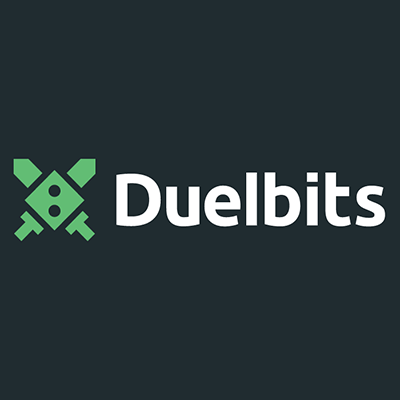Gambling in the United Kingdom
Online Gambling has been a big success over the years, with the industry experiencing rapid growth as more and more players flock towards online casinos almost daily. Players across the globe partake in online gambling on a daily basis.
For experienced players, there are few concerns regarding the legalities of gambling online, as they are up to speed on most of the current legislation in their region. For novice players it can often be quite scary to start gambling, not knowing where to begin to find the information needed regarding the gambling regulations in their specific region.
With this quick guide, we’ll get you up to speed on the latest gambling legislation and regulations in the United Kingdom. Once you’re finished reading you’ll be up to speed with all the current rules regarding gambling, ensuring that you get to enjoy a safe and stress-free time when you sign up at any of the top-rated online casinos in the UK.
Luckily the laws regarding online gambling in this region are very straightforward. The online gambling industry is booming in the United Kingdom, and most forms of gambling, including online gambling, is legal in this region.
The United Kingdom Gambling Commission

One of the many things that make gambling in the United Kingdom a breeze is a knowledge that the United Kingdom Gambling Commission (UKGC) is on top of all things related to gambling. This commission was established under the terms of the Gambling Act of 2005 and took full control about two years later, in 2007.
The commission has taken over the majority of responsibilities that once sat with the Gaming Board of Great Britain. One of their many tasks is to take responsibility for the regulation of online gambling in the UK.
The UKGC has the power to issue licences to gambling operators, and also to revoke these licences or serve fines if the operators are not adhering to the rules. Their main objectives are to prevent gambling from turning into a source of crime or disorder, to ensure that any form of gambling takes place in a fair and transparent way, and to keep children or vulnerable citizens from being harmed or exploited by gambling.
They can only issue licences to operators based in the UK, but they also allow operators licensed in certain approved or “whitelisted” regions to provide their services to UK citizens.
The UKGC is known to be strict when it comes to making sure that operators adhere to the rules, and remains vigilant when it comes to any crime-related activities that might be connected to certain operators. They have been known to shut down many online operators who’ve been connected to crime families or criminal activities such as money laundering.
The law regarding online gambling in the UK
It’s safe to say that gambling has had a very long and colourful history in Great Britain. Over the centuries many forms of gambling were restricted in the UK when it came to where they may take place or who is allowed to participate.
Over the years, however, the gambling market has been greatly liberalised and in recent years it is known as one of the most progressive and liberal jurisdictions when it comes to gambling.
Remote Gambling, also referred to as online gambling, is generally permitted. This means that any operator licensed by the UKGC may provide gambling services to UK Citizens. These operators can also be licensed by the UKGC to offer their gambling services to players in any jurisdiction of the world.
The UKGC also has a whitelist of approved jurisdictions in which operators will be granted licenses to serve UK citizens.
The Gambling Act 2005 has brought some changes, whereby online gambling providers have been granted licences despite their locality. Another big thing this law has brought is a change regarding taxes. Operators based overseas are now expected to pay the same percentage of tax that UK-based companies have been paying since the start.
For players, the 2005 Act simply brings more safety and a more secure gambling environment by ensuring that licensed companies undergo frequent testing and regulation. This is simply to ensure that companies both licensed within the UK and off-shore are complying with the level of security and fair gaming the UKGC requires.
Changes being made to UK Gambling Legislation
The United Kingdom Gambling Commission has gone to great lengths to improve the gambling industry. While changes were made to the Gambling Act in 2014 the Commission has remained active and dedicated to improving the gambling industry both online and offline.
More recently the Gambling Commission has added a few new rules for online operators to follow. These rules have been implemented to provide a safer and fairer gambling experience for all players in the UK. The new changes rule mainly focus on age verification as the Commission is dedicated to cutting down the numbers of underage gambling.
Online gambling operators are now required to verify the age of all existing and new customers. Verifications are quite strict and require players to produce proof such as name, address and date of birth. Additional verification information can be requested in times of uncertainty.
As of September 2021, there is a strict implementation of a maximum deposit limit of £500 for all players under the age of 25!
However, this could be removed if a player can showcase they earn an income that can support spending above that amount.
ID Verification
The United Kingdom Gambling Commission recently introduced stricter verification measures. These measures are intended to protect minors and young children. The new rules state that players must verify their age before they will be allowed to gamble with their own money (or even a free bet) or transfer any funds into their account. Players will be unable to withdraw any of their winnings until their age has been verified. Also, customers will now have to confirm their ID as well as their age every time they sign up or log in to an online gambling or sports betting site.
The End of Credit Card Payments
Another regulatory development concerns the use of credit cards. Credit card payments are no longer permitted to be used when gambling online. The regulation was enacted as a response to the growing number of players who are incurring major amounts of credit card debt by spending money that is not theirs. From a technical perspective, customers will now only be able to gamble with their own money.
GamStop Compliance Requirement
As part of the Gambling Commission’s updated licensing requirements, any online gambling operator seeking to obtain a licence must sign up for participation in the GamStop online self-exclusion scheme. GamStop is a free, independent institution that allows players with online gambling problems to exclude themselves from gambling websites. Compliance with the GamStop regulation applies to both potential and existing online gambling operators.
Ban on Betting Advertisements
During the latter part of 2019, the gambling industry decided to ban betting advertisements during live televised sporting events. The self-imposed ban was set in place to align with existing industry rules regarding online advertising and it shows how seriously this industry takes its responsibility to provide a safe, fair and transparent gambling environment for its customers.
VIP Verification
In October 2020 the UKGC implemented their guidelines for all operators to verify each player before declaring them for VIP. This includes ID, source of funds, and documents to support their profiles. All of this with the aim of responsible gambling and a safe environment online.
Can my online gambling wins be taxed?
Online gamblers participating in online gambling in the UK don’t have to pay tax on any of their winnings, and they also don’t need to report their winnings as part of a tax return. The United Kingdom has declared all winnings from gambling both online and at land-based casinos entirely tax-free. Even professional gamblers who make a living off their gambling are not required to pay tax on their winnings. Of course, this also means that you can’t claim any tax refunds on your losses either.
While players don’t need to pay tax on gambling-related winnings, the operators are required to pay a hefty 21% tax on their income as of 01-OCT-2019 (15% before this date) This applies to both in-house and off-shore operators. This steep tax levy has raised many questions regarding black market betting-houses and operators, but the UKGC is determined to keep the United Kingdom clean from any unlicensed or unregulated casinos.
Is online gambling legal in the UK?
The UK gambling market has been rated as one of the topmost respected and trusted gambling regions worldwide. It is also one of the most lucrative, and plenty of gambling companies are trying to get their slice of the pie.
For you as a player, the UKGC has been put in place over a decade ago to ensure that you are receiving safe and secure online gambling entertainment. It is also 100% legal for players to partake in online gambling at any of the top-rated online casinos or establishments that have been licensed or approved by the UKGC.
While it is legal to play, we’d strongly suggest you take a look at the top-rated UK online casinos to ensure you don’t get caught in a scam or an illegal site. The UKGC might have strict rules in place and a firm grip on the industry, but there are always sites that manage to slip under the radar and rob players of their hard-earned cash. Always check if your online casino carries the seal of approval and licensing stamp of the UKGC before committing to it.






.png)


















.svg)
.svg)
.svg)